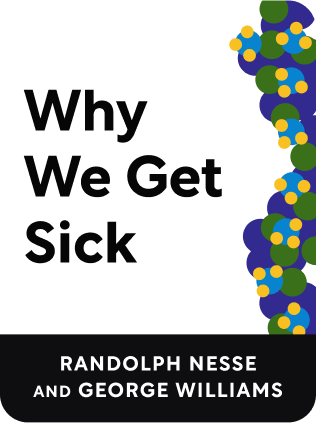

This article is an excerpt from the Shortform book guide to "Why We Get Sick" by Randolph Nesse and George Williams. Shortform has the world's best summaries and analyses of books you should be reading.
Like this article? Sign up for a free trial here .
Why isn’t evolutionary medicine taught in medical school? How could understanding how our bodies came to be this way help us to accept diseases and inspire hope?
Medical schools prefer to teach using science that they can test in a lab rather than evolutionary medicine. However, evolutionary medicine can explain some attributes that modern medicine cannot.
Keep reading for more on evolutionary medicine.
The Evolution of Medicine and the Human Body
The human body has been shaped over millions of years as a well-functioning bundle of compromises. What looks like mistakes, evolutionary medicine explains, are more likely to continue to exist for these reasons:
- Behavior that seems harmful likely has unappreciated benefits that outweigh costs.
- Natural selection doesn’t punish genes that cause damage late enough in life.
- Novel environments make some evolved genes maladaptive today.
- Some attributes are purely historical legacies.
The authors of Why We Get Sick wish to broaden discussions of disease to include these questions:
- Which aspects of the syndrome are direct manifestations of disease, and which are defenses?
- If the disease has a genetic component, why does it persist? What possible benefits might it confer?
- Is the disease partly caused by novel environmental factors that didn’t use to exist?
- If the disease is related to infection, which aspects of the disease benefit the host, which benefit the pathogen, and which benefit neither?
- What design compromises or historical legacies account for our susceptibility to this disease?
Broadening Evolutionary Medicine
The authors call for more funding of research for evolutionary medicine.
There have been barriers to adopting evolutionary medicine in practice, including:
- A dislike of ideas relating to adaptation and natural selection
- A preference for the randomized-controlled-trial method of scientific inquiry. Instead, evolutionary medicine would work more like geology, which is a credible science despite not being able to run randomized trials.
- Medical education being too expansive and overwhelming to fit in Darwinian concepts
But evolutionary medicine may help patients come to terms with their disease. It may make them easier to address.
- For instance, some patients understand heart disease is proximately caused by high cholesterol, high blood pressure, and diet. They see doctors as admonishing them for avoiding foods they like.
- But if you taught them Darwinian medicine, they may understand why their dietary preferences evolved in a certain way that is maladaptive in today’s world. They may realize how food manufacturers have co-opted this primal eating drive to produce deceptively tasty food. Armed with this knowledge, patients may have more ammunition in their battle against their biology.
If patients understood the evolutionary bases of their disease, they can have satisfying reasons for why the disease exists. This may prevent patients from feeling that disease is meaningless, and it may inspire hope that there are ways to circumvent the disease.

———End of Preview———
Like what you just read? Read the rest of the world's best book summary and analysis of Randolph Nesse and George Williams's "Why We Get Sick" at Shortform .
Here's what you'll find in our full Why We Get Sick summary :
- Why evolution hasn't rid humans of all diseases
- How reproductive fitness is more important than overall survival
- How you evolved to dislike the sound of a baby crying






